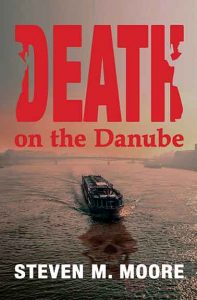Book prizes…
They go from the prestigious Nobel, Pulitzer, and Man Booker prizes to less prestigious and banal ones some local book clubs or author groups hand out (often associated with some event). By and large, they all are recognitions of some author’s hard work in writing a book considered meritorious by some committee of judges—popular voting often wouldn’t provide the same recognition, because it’s often fickle, as Dancing with the Stars and American Idol have shown. (Recall Adam Lambert losing the latter because homophobic evangelicals biased the vote, giving a winner who has done nothing since? Yes, evangelicals damage the country and the world that way too.). The most extreme popular vote is sales numbers, and that really is fickle! But who are those judges?
They can be biased too, of course. They’re often just the good ole guys and gals who award prizes to someone within their same in-group. I can imagine them sagely nodding and saying, “Now it’s so-and-so’s turn to win.” Or one group tries to exclude another. In 2018, a group pressured Man Booker to exclude American authors, for example (they fortunately didn’t succeed). I’ve seen prizes awarded to books that are terrible; I know this because I read them (although sometimes they were so bad, I couldn’t finish).
Those top prizes—Nobel, Pulitzer, and Man Booker, to name a few—are coveted by authors and publishers alike, so you know literary politics plays a role as big publishers campaign for certain books and authors (the adjective “literary” is needed because most politics is controlled by illiterate idiots—DC is infested with them). That’s human nature, and, because of this, for me, they’re always suspect. It’s also hard to prove any shenanigans, because the public knows little about the inner workings of the judging processes. The Nobel committee created a scandal a few years ago, so much so that no prize was given.
But do avid readers actually read prize-winning books, or are the prizes, no matter the level, largely ignored by readership and reduce to ego-trips for the authors? The last Nobel prize novel I read was Garcia Marquez’s Cien Años de Soledad (One Hundred Years of Solitude); I read it in the original Spanish long before Gabo received the Nobel for it and greatly admired his use of magical realism. (The latter influenced part of my “Chaos Chronicles Trilogy,” although Gabo used it in neither a fantasy nor sci-fi setting—yes, those can also seem very realistic!)
These top prizes are often given to what’s been called “literary fiction” books (as if genre fiction wasn’t literature!), a catch-all category often not found in bookstores that are smart enough to realize that the label is meaningless. (Although it might seem unusual to call To Kill a Mockingbird a legal thriller, that’s what it is, and it’s undoubtedly the best one ever written! Sorry, John Grisham—your books can’t compare.)
My suspicions about how meritorious prizes are covers all levels. Why did Cixin Liu’s The Three-Body Problem receive a Hugo? It’s a terrible sci-fi story and terribly written. It’s something like a political thriller, and I suppose that any story knocking modern China is worthy of some consideration, but the Hugo? Really? (See my 7/28/2017 review in the “Book Reviews” archive of this blog.)
Many low-level prizes are nothing more than money-makers for the organizations “sponsoring” them. These disguise that practice by using the questionable tactic of calling entry fees “reading fees.” When many of these use volunteer judges, their pay being promised prestige, you have to wonder who’s getting those fees. Danger, danger, Will Robinson! Authors should think more than twice about entering such contests.
All that said, I’ve seen fellow authors, whose books I greatly admire, win prizes. Many of these are good friends, and I applaud them. An old professor of mine, N. Scott Momaday, won a Pulitzer and truly deserved it—he’s a great writer. I never met Gabo when I lived in Colombia, but he and Pablo Neruda are my favorite Latino writers (poet in the case of Neruda)—both Pablo and Gabo won the Nobel. I don’t need formal judges, volunteers or otherwise, to tell me what books are worth reading. I really don’t care if a book wins a prize or not when I’m selecting books to read. Book prizes are like Emmys and Academy Awards: useless for determining my entertainment choices. In fact, many determine what I do NOT want to read.
***
Comments are always welcome.

Death on the Danube. At the end of Son of Thunder, #2 in the “Esther Brookstone Art Detective” series, ex-MI6 agent and ex-Scotland Yard inspector Esther Brookstone and Interpol agent Bastiann van Coevorden finally say their I-do’s. At the beginning of this new novel, #3 in the series, they embark on their honeymoon cruise down the romantic Danube. When a strange passenger who is traveling alone is murdered, Bastiann takes over the investigation because the river was declared international waters in the Treaty of Paris. Who really is this gaunt victim? And who on the list of passengers and crewmembers is the assassin? Mystery, thrills, suspense, and romance await readers who join them in their journey. You can’t take this trip now because of COVID, but you can join them in spirit. Available in ebook and print format at Amazon, and all ebook formats at Smashwords and its affiliated retailers (iBooks, B&N, Kobo and Walmart, etc.) and affiliated library and lending services (Scribd, Overdrive, Baker & Taylor, Gardner, etc.). See the Readers’ Favorite 5-star review here.
Around the world and to the stars! In libris libertas!
